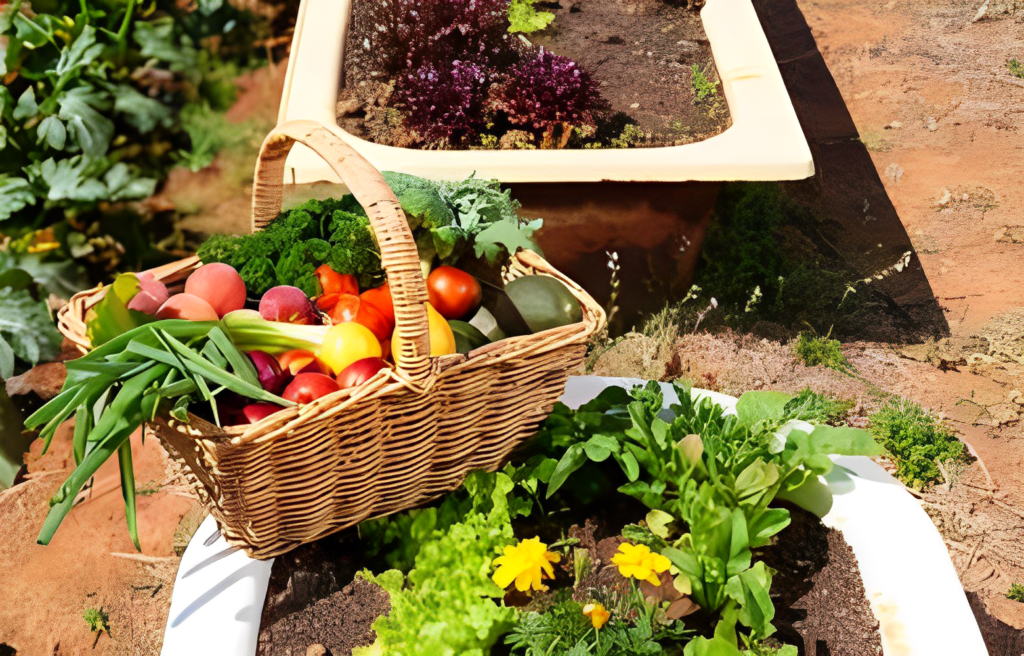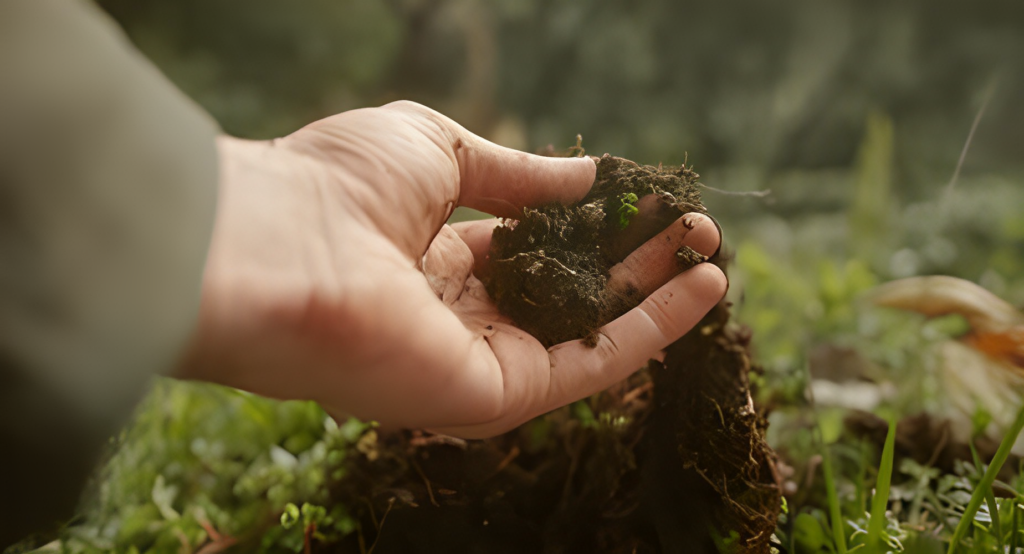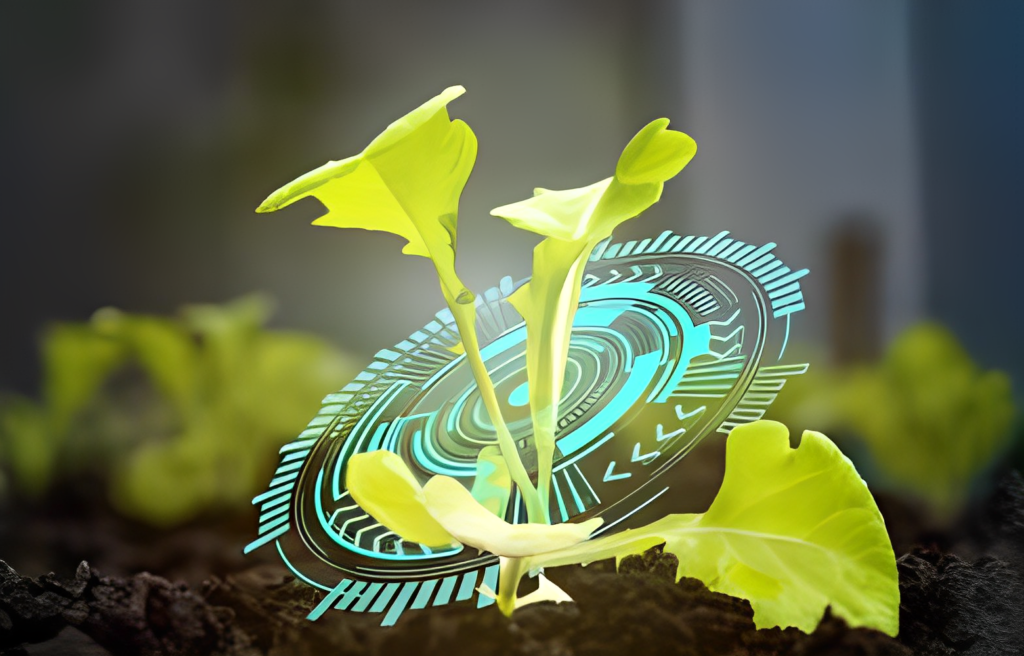As we become increasingly aware of the impact our consumer choices have on the environment, the benefits of growing your own food and embracing sustainable practices have come to the forefront. Organic gardening, in particular, offers numerous advantages for both the planet and our health. By avoiding harmful chemicals and choosing natural techniques for nurturing the soil and crops, we can yield fresher and more nutritious produce while reducing our carbon footprint. In this article, we’ll explore the importance of organic gardening and how it can play a role in creating a more sustainable future.
Embracing Sustainable Gardening Practices
At the heart of sustainable gardening lies the idea of working with nature to support healthy plant growth while minimizing negative environmental impact. Organic gardening is one of the cornerstones of sustainable gardening and can play a significant role in reducing the carbon footprint of gardening practices.
One of the key benefits of organic gardening is the use of natural fertilizers, such as compost and manure, instead of synthetic fertilizers. Not only do natural fertilizers promote healthier soil and plant growth, but they also eliminate the environmental harm caused by synthetic fertilizers, such as nutrient runoff and groundwater contamination.
Organic gardening also revolves around safe pest management practices. Instead of relying on harmful pesticides, organic gardeners use biological controls, such as beneficial insects and natural repellents, to manage pest populations. This approach not only helps preserve delicate ecosystems but also avoids exposing wildlife to the adverse effects of pesticide use.
In addition, organic gardening promotes the preservation of soil health by avoiding harmful tillage practices and encouraging soil microbe activity. By promoting healthy soil, organic gardening further reduces environmental impact and contributes to improving the overall health of the local environment.
In summary, embracing sustainable gardening practices, particularly organic gardening, can go a long way in reducing environmental impact while promoting healthy plant growth and a healthier environment overall.
The Health Benefits of Organic Gardening
Organic gardening is a rewarding and fulfilling experience that offers numerous health benefits. One of the most significant advantages of growing your own produce is the nutritional value of the fruits, vegetables, and herbs that you harvest. Homegrown produce is often fresher and more nutritious than store-bought options, as it is typically harvested at peak ripeness and retains more vitamins and minerals.
Another compelling health benefit of organic gardening is the reduction in exposure to harmful chemical residues found in conventional pesticides and fertilizers. By using natural and organic alternatives, such as companion planting, crop rotation, and composting, you can protect your family and the environment from harmful toxins.
Engaging in organic gardening is also an excellent way to increase physical activity levels, reduce stress, and promote mental well-being. Spending time outdoors and engaging in physical labor has been shown to reduce stress levels, boost mood, and lower the risk of various health conditions.
Overall, organic gardening offers a wealth of health benefits that can positively impact both physical and mental well-being. By growing your own produce and embracing a sustainable lifestyle, you can improve your health, protect the environment, and enjoy the many rewards of organic gardening.
Getting Started with Backyard Farming

Are you interested in growing your own delicious, organic produce right in your own backyard? Backyard farming is a great way to do just that! Not only will you be able to enjoy fresh, homegrown fruits and vegetables, but you’ll also reduce your carbon footprint and promote sustainability in your community. Here are some practical tips to help you get started:
Selecting Appropriate Crops
The first step to a successful backyard farm is selecting crops that are appropriate for your local climate and soil conditions. Consider factors such as sunlight, temperature, and rainfall to determine which fruits and vegetables will thrive in your backyard.
Preparing the Soil
Healthy soil is the foundation of any successful garden. Begin by testing the acidity level of your soil and adding organic matter such as compost or aged manure to improve fertility. Be sure to remove any weeds or debris that could potentially harbor pests or disease.
Managing Pests and Diseases in an Organic and Sustainable Manner
One of the biggest challenges in backyard farming is pest management. Avoid harmful pesticides and consider using natural alternatives such as companion planting, crop rotation, and organic sprays. Encourage beneficial insects such as ladybugs and bees to help control pests.
Harvesting Homegrown Produce
Once your crops have matured, harvest them regularly to promote continued growth and prevent spoilage. Use proper food handling techniques to ensure the safety and quality of your homegrown produce.
By following these tips, you’ll be well on your way to a successful and sustainable backyard farm. Embrace the joys of homegrown produce and enjoy the tastes of nature!
Urban Gardening: A Solution for Limited Spaces
If you’re living in an urban area, you might think that growing your own food is impossible due to limited space. However, urban gardening provides a solution to this problem. By utilizing innovative techniques, you can grow fresh produce in small urban spaces.
Rooftop gardens are becoming increasingly popular, and they offer a great way to produce food while also insulating buildings, reducing energy bills, and improving air quality. Vertical gardens, while still relatively new, are another solution for those with limited space. These gardens can be installed indoors or outdoors, and they maximize the use of limited space by growing produce upwards, rather than outwards.
Community gardens are also a great option for those without access to personal outdoor space. These gardens allow people to grow their own food and get involved in a community project. They provide an opportunity to learn from experienced gardeners and exchange ideas with neighbors.
Overall, urban gardening allows you to grow your food naturally, even in limited spaces. There’s no need to compromise on health, and in fact, homegrown produce often has more flavor and nutritional value than store-bought produce.
Organic Gardening Methods and Techniques
Organic gardening is more than just avoiding synthetic pesticides and fertilizers. It involves a comprehensive approach to sustainable gardening using natural methods and techniques that promote soil health and support biodiversity. Here are some common methods and techniques used in organic gardening:
Companion Planting
Companion planting involves growing different plants together that benefit each other in some way. For instance, planting basil with tomato plants can improve the flavor and yield of the tomatoes while also repelling pests.
Crop Rotation
Crop rotation involves growing different crops in a specific order to help reduce soil-borne diseases and pests while also improving soil health. For example, rotating legumes like peas and beans with nitrogen-hungry plants like corn can help improve soil fertility naturally.
Natural Pest Control Methods
Organic gardeners use a variety of natural pest control methods to manage garden pests and insect populations without using harmful chemicals. Examples include introducing beneficial insects like ladybugs and lacewings, using neem oil to repel aphids, and using floating row covers to protect plants from pests.
Composting
Composting is the process of transforming organic waste such as kitchen scraps, leaves, and grass clippings into nutrient-rich compost that can be used to improve soil health and fertility. Adding compost to garden soil helps to improve soil structure, increase drainage, and enhance nutrient availability.
By adopting these methods and techniques, organic gardeners can promote sustainability and yield healthier, more nutritious produce. Moreover, organic gardening benefits the environment by reducing the need for synthetic inputs and supporting biodiversity through natural pest control methods and preservation of soil health.
Nurturing the Soil: The Foundation of Organic Gardening

When it comes to organic gardening, soil health is essential to producing healthy and nutritious crops. One way to improve soil health and fertility is through the use of organic matter such as compost and cover crops.
Compost provides an array of benefits to the soil, including increased soil structure, water-holding capacity, and air circulation. The rich nutrients in compost also support the growth of beneficial microorganisms, which contribute to healthy soil and plant growth.
Cover crops, such as legumes and clover, are used to protect and enrich the soil during fallow periods. These crops help prevent erosion, suppress weeds, and fix nitrogen in the soil, which can benefit subsequent crops.
Additionally, reducing the use of synthetic fertilizers helps to minimize the environmental impact associated with conventional farming practices. By embracing organic gardening practices, we can cultivate healthier soil and promote sustainable growing practices that benefit both our health and the environment.
Organic Gardening and Food Security
Organic gardening plays a crucial role in promoting food security, which is vital in today’s world. When you grow your own food, you reduce your reliance on external food sources, thereby enhancing your household’s resilience. Additionally, homegrown produce is fresher and provides more nutrients compared to those bought from the market.
Organic gardening offers a sustainable way of producing food and can serve as a reliable source during emergencies such as pandemics or natural disasters. By cultivating a vegetable garden, you not only enjoy fresh and healthy produce, but you also contribute to promoting food security in your community.
Moreover, by relying on organic gardening practices, you help protect the environment by reducing your carbon footprint from external food sources. You can also reduce food waste by having better control of the amount of food you produce and consume.
In summary, organic gardening provides a solution to food insecurity, protects the environment, promotes healthy lifestyles, and improves the overall well-being of households. By embracing organic gardening, you not only take control of your food production but also contribute to a healthier, more sustainable future for yourself and future generations.
Overcoming Challenges in Organic Gardening
While there are many benefits to organic gardening and backyard farming, it is not always easy. Common challenges gardeners face include managing pests and diseases without synthetic chemicals, dealing with unpredictable weather patterns, and finding the time to maintain a garden while juggling other responsibilities.
However, don’t let these obstacles discourage you from reaping the benefits of organic gardening. With a bit of creativity and some practical solutions, you can overcome these hurdles and maintain a thriving organic garden in your backyard.
1. Pest and Disease Management
One of the biggest challenges of organic gardening is managing pests and diseases without resorting to synthetic chemicals. However, there are many natural options available, such as companion planting, crop rotation, and the use of natural pesticides such as neem oil and diatomaceous earth.
2. Unpredictable Weather Patterns
Weather fluctuations can pose a challenge to even the most experienced gardeners. One solution is to use season extenders such as row covers and cold frames to protect plants from frost and other extreme conditions. Additionally, selecting crop varieties that are adapted to your local climate can help ensure that your garden thrives despite unexpected weather patterns.
3. Finding Time for Garden Maintenance
Between work, family, and other commitments, finding time to maintain a garden can be a challenge. However, there are many ways to make gardening more manageable, such as using raised beds to reduce the amount of bending and kneeling required, setting up an irrigation system to automate watering, and selecting low-maintenance crops that require minimal attention.
Overcoming these challenges may take some effort, but the benefits of organic gardening and backyard farming are well worth it. With a little creativity and dedication, you can enjoy fresh, healthy produce and contribute to a more sustainable future.
Cultivating a Sustainable Future through Organic Gardening

Organic gardening is not just about growing your own food, but it is also about cultivating a sustainable future for generations to come. By embracing organic and sustainable gardening practices, we can collectively reduce our environmental impact, promote better health outcomes, and enhance food security.
The importance of organic gardening cannot be overstated. Sustainable gardening practices contribute to the conservation of natural resources, promote biodiversity, and reduce the use of harmful chemicals that harm the environment and human health. By opting for organic gardening techniques, we can create a positive ripple effect that extends beyond our own backyards and into our communities.
Organic gardening also promotes sustainable living by reducing our reliance on external food sources and increasing our self-sufficiency. By growing our own food, we can ensure that we have access to locally produced, fresh, and nutritious produce all year round. This not only benefits our own health and well-being but also helps to build stronger and more resilient communities.
Moreover, organic gardening has a significant role to play in global food systems. By embracing sustainable gardening practices, we can reduce food waste, minimize the carbon footprint associated with industrial agriculture, and promote more equitable access to food resources.
By taking action and embracing organic gardening in our own lives, we can contribute to a brighter and more sustainable future for all. So let’s roll up our sleeves, dig in the dirt, and cultivate a better world through the power of sustainable and organic gardening.





